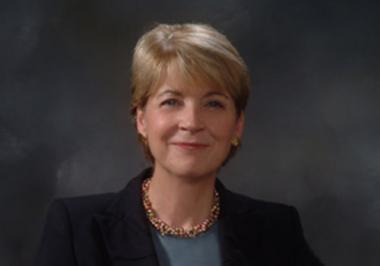For Massachusetts voters who are invested in the reform of existing drug policies—and the success of Question 2 on the November 2008 ballot would suggest that's a significant chunk of the electorate—next week's special Senate election presents a quandary.
In one corner, representing the Republicans, we have state Sen. Scott Brown, who in 2009 filed a bill that would undercut Question 2, which decriminalized possession of small amounts of marijuana, making it a civil offense punishable by a $100 fine. Within days after that law (which was approved by 65 percent of voters) took effect, Brown introduced his bill, which would increase the fine to $1,000 if the pot was found in a car, and would also result in a 90-day license suspension.
Brown's bill was protested by marijuana reform activists, who point out that one of Brown's stated intents—to keep people from driving stoned—was already addressed under existing OUI laws.
In the other corner, meanwhile, is Democratic Attorney General Martha Coakley, who joined the Massachusetts District Attorneys' Association in opposing Question 2. Then, when proponents of the ballot question filed a complaint with the AG's office alleging that the DAs' campaign violated election laws (for instance, by using public funds for the campaign) and relied on falsehoods (for example, claiming the law would mean "any person may carry and use marijuana at any time"), Coakley rejected the complaint.
After Question 2 was approved, Coakley drafted sample legislation for municipalities to use to draft their own local ordinances increasing the fine—a move that was allowed by law, but that flies in the face of the intent of voters on Question 2.
"Ms. Coakley opposed [Question 2] and has worked to undermine it since passage," Terry Franklin, a longtime proponent for drug-policy reform, told the Advocate last fall, as Coakley was heading into the Democratic primary in advance of next week's special election.
Coakley's campaign did not respond to a request for comment from the Advocate.
*
In the December Democratic primary, many voters who back the reform cause threw their support to U.S. Rep. Michael Capuano, whose track record on the issue is strong: Capuano supported Question 2, and is co-sponsor of a federal marijuana reform bill filed last summer by Rep. Barney Frank that would decriminalize possession of 100 grams of pot or less.
"I think it's ridiculous we spend as much money and time as we do on minor infractions," Capuano told the Advocate shortly before the primary. He described the argument that marijuana is a "gateway" to harder drugs as "ridiculous," adding, "I also don't like the idea of ruining some young people's lives because they decided to smoke a joint."
Capuano is also a supporter of medical marijuana legislation—as, it should be noted, is Coakley, who last summer voiced her support of medical marijuana, "only with a prescription."
But Coakley's position on medical use of marijuana is not enough for voters like Franklin. With Coakley defeating Capuano (and fellow candidates Alan Khazei and Stephen Pagliuca) in the December primary, reformers find their options limited, at least when it comes to the two major parties.
"At least on this one issue, drug policy reform, the two parties are offering us two negatives," Franklin told the Advocate recently.
"In this month's election, I would have a hard time deciding which of the two evils [Coakley and Brown] was the lesser," added Franklin, who in an online discussion group for drug policy reformers described both candidates as "Prohibitionist fanatics" who "continue to undermine our hard-won Question 2."
That's why Franklin is urging voters to look in a third corner, the one occupied by Joe Kennedy ("not the nephew, the other Joe Kennedy," as Franklin describes him), a libertarian who's running as an Independent and a self-described "Tea Party Candidate."
Kennedy, who believes marijuana policy should be handled by the states, not the federal government, supports several reform bills, including Frank's medical marijuana and decriminalization bills.
"With so many people complaining about the two- party system, it is surprising that more don't vote for the alternatives offered by hard-working non- or third-party activists," Franklin said. "I'm going with the alternative."
Dick Evans, a Northampton attorney who's been active in drug reform efforts for decades, expressed frustration at how far behind the voters politicians lag on the issue. "What baffles me about the Senate race is that all the Dem and Rep candidates pretended not to have noticed that the [decriminalization] initiative passed, only a year ago, by a margin of 65 to 35. Is that not a sufficient group of voters to appeal to?" Evans told the Advocate.
"Sure, [marijuana's] always been the third rail of politics—touch it and you're dead—but, jeez, 65?
"What's going on, I fear, is simply that politicians are spineless on this issue, so they hide behind a cloak of cluelessness. And it is a real cloak," Evans continued. "For their entire adult lives, they have bought into prohibitionist doctrine, which blinds them to the most obvious truths, including the fact that, like it or not, [marijuana] is ineradicable.
"Any day now, a candidate will come along who will have not only the courage but the political instinct to reach out to those 65 percent of voters and earn their support," he predicted.



